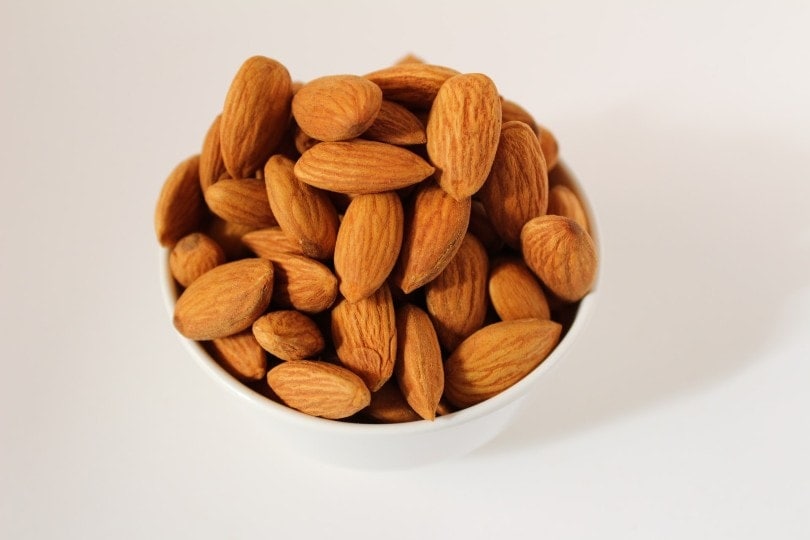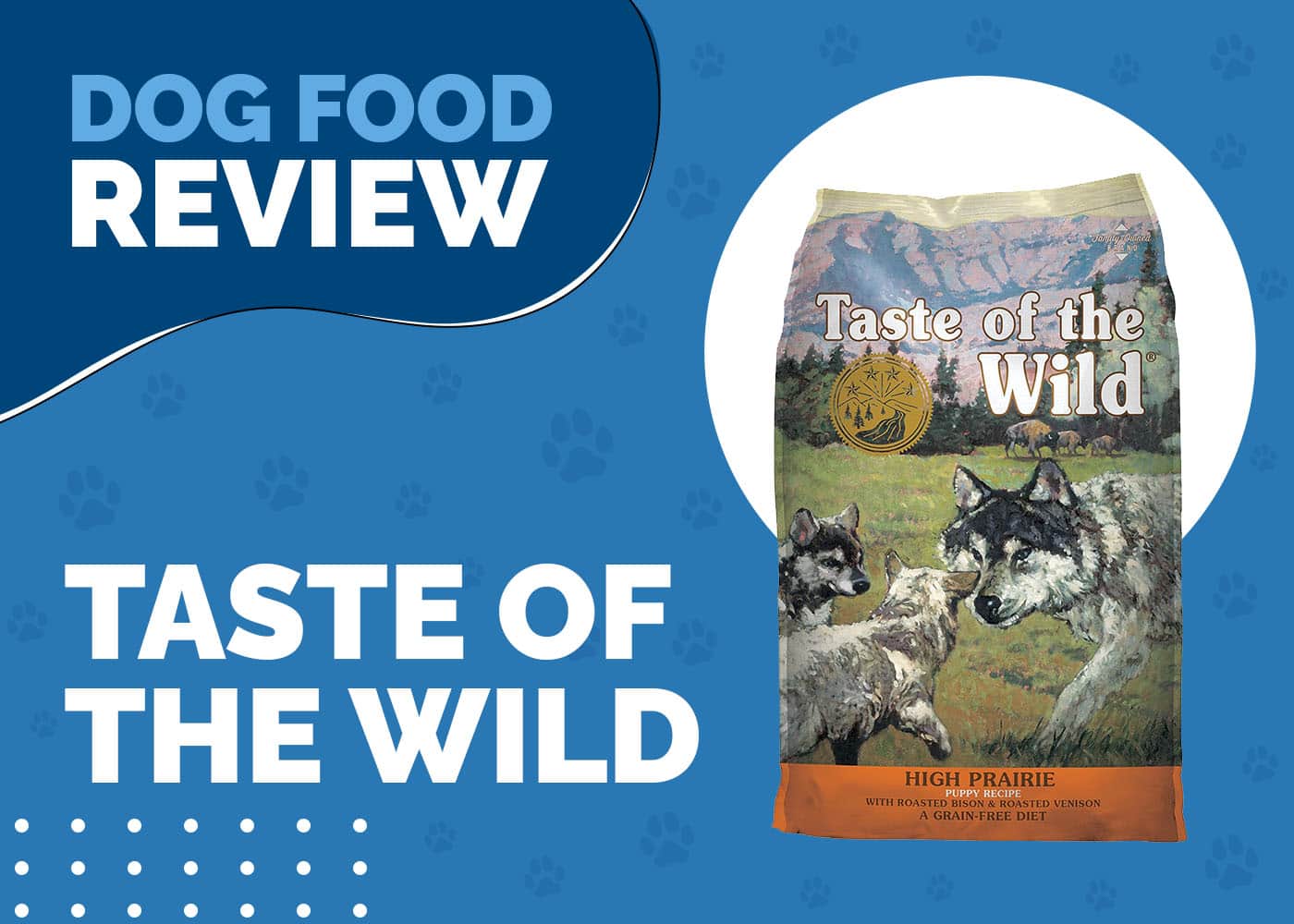Can Dogs Eat Almonds? Are Almonds Safe for Dogs?

Updated on

Some dogs are quite food-motivated. They’ll eat anything you offer them—or drop on the floor. If you like to eat almonds for their nutritional value, you may wonder if you can give them to your pooch, too. Share the love! As it turns out, the rumors swirling around on the Internet about them being toxic to your pup are not true.
Your dog can eat almonds safely with a few precautions.
Let’s get to the heart of this question and give you the facts about almonds and feeding them to your dog.
Health Benefits and Risks of Almonds
There are two parts to the issue of almonds and your pet. First, the critical point is toxicity. The nuts that you buy at the store are sweet almonds. California is the top producer, with about 7,600 farmers supplying 80 percent of the global market. That’s opposed to the so-called bitter almonds, which manufacturers use to produce the almond extract.
It is poisonous to pets and people in its raw form because it contains a pre-cursor to cyanide that forms when mixed with water—like part of the fluid within your GI tract.
The second issue concerns the nutritional value of almonds. Presumably, you’d consider giving your pooch some because there was some health benefit to doing so. Taste, of course, is another factor, which we’ll address, too. Let’s begin with health benefits.

Nutrient Content of Almonds
Almonds provide a wealth of vitamins and minerals that are excellent for both people and pets. They are rich sources of vitamin E, magnesium, and monounsaturated fats. Research suggests that eating almonds regularly can improve cardiovascular and GI health. If he likes them, at least your dog is eating something healthy. It’s one reason that you’ll see it as an ingredient in dog foods and treats.
Caveats to the Almond Safety Issue
You can buy them either shelled or unshelled and salted or unsalted. There are also many flavors to tempt you to eat more of this nutritious snack. However, these factors also highlight some of the negative issues of feeding your pooch almonds. While we understand that they are tastier, salted nuts contain a lot of sodium.
The recommended nutritional range for dogs is between 75–200 grams. A 3-ounce serving contains a whopping 387 grams. That’s not to say that you’ll dump almonds in his kibble. However, it is a point worth noting when considering all sides of the issue.
The fat content is also problematic. While its exact cause isn’t known, some pups develop pancreatitis from a high-fat diet. Another concern is gastroenteritis, or simply, GI distress. Some foods may not agree with your pooch and cause vomiting or diarrhea. That’s why we suggest only giving your pup a few the first time to make sure it’s not going to cause issues.
The next big thing is the flavorings. While the almonds are okay, the ingredients that manufacturers add might be a different story. Read the entire list of additives. Avoid giving your pooch anything containing onion, garlic, or cayenne. Don’t give him chocolate-covered nuts, either. We suggest plain, unsalted almonds.

Other Problems with Feeding Your Pet Almonds
There are two other things we must discuss, allergies and choking hazards. Allergies to nuts are not common in dogs. However, it’s worth mentioning because some symptoms aren’t evident. GI problems are the obvious ones. Other signs include itchy feet or ears. Some pets develop skin rashes. You might not think of these issues as allergy-related.
The other concern is the choking risk. Almonds are small and not readily digestible. We recommend only giving your pooch one at a time, making sure that he has swallowed it before giving him any more. We’d also suggest not giving almonds to puppies that may gobble up a handful in their zeal to eat. Supervise your dog to make sure he knows to chew them instead of just swallowing them.
Conclusion: Your Dog and Almonds
For the most part, almonds are not harmful to your pet. They may not taste as good to him as other treats. If he likes them, you can feed him some. As we recommended, go with plain and unsalted nuts to avoid issues with sodium or other ingredients. Don’t be surprised if he doesn’t like them. After all, sometimes you feel like a nut, and sometimes, you don’t.
See Also:
- Can Dogs Drink Almond Milk? Is Almond Milk Safe For Dogs?
- Can Dogs Have Almond Butter? Vet-Reviewed Nutrition Facts & Safety Guide
Featured Image Credit: stevepb, Pixabay











